Category: Law & Justice
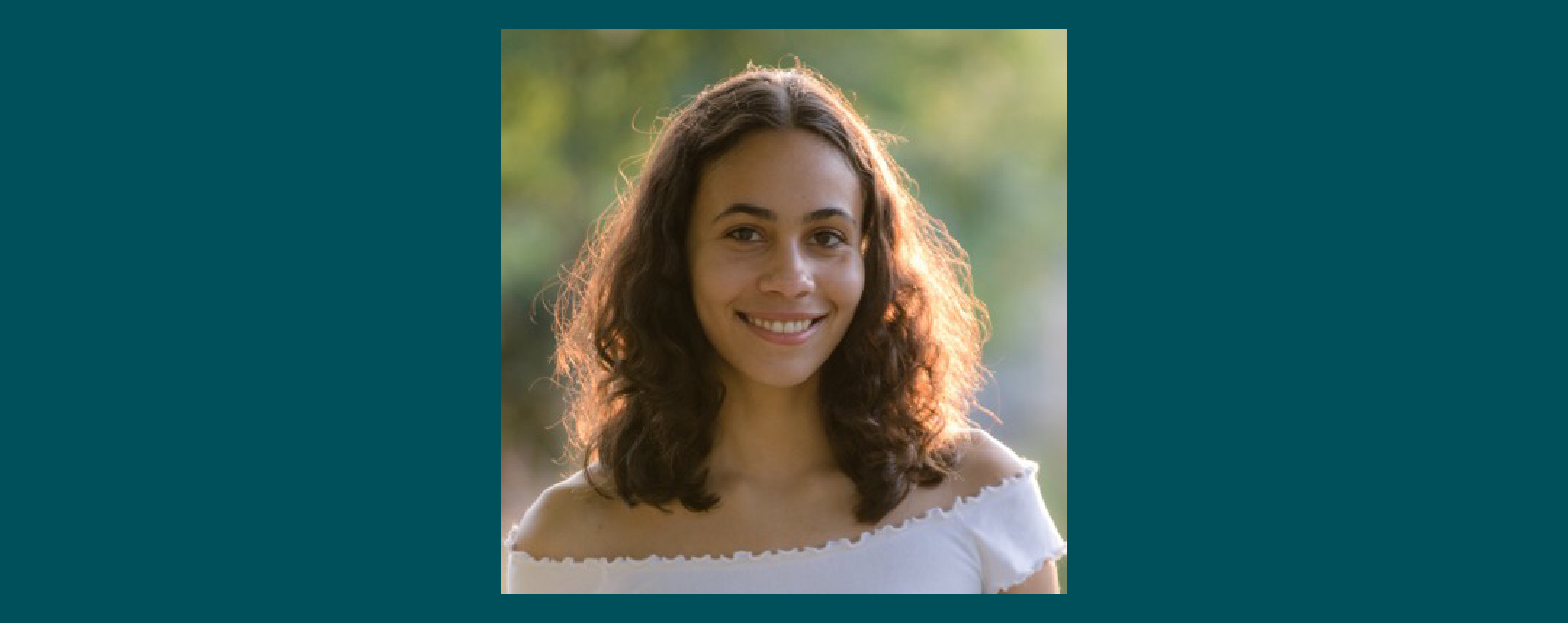
Revisiting Milwaukee: Learning About My Hometown Through Service
By Elyse Cornwall, ’22
The first time I drove to Moody Park, I suppressed my nerves about driving into an area known for reckless driving. I reminded myself that these feelings came from racist assumptions about a community I had never meaningfully interacted with. Still, I stopped at green lights as oncoming cars ran the red, and rushed down main streets to keep other cars from skirting past me. Thus, I arrived at Moody Park feeling simultaneously afraid and embarrassed, and that was when the youth participants arrived. My primary responsibilities were event planning and coordinating with other volunteers, but I realized that my work behind the scenes could not be effective until I immersed myself in the community I served. When I ate meals, played games, and shared stories at Moody Park, a new side of my service experience emerged.
My weekly discussions with youth living near Moody Park covered topics like drugs and alcohol, police relations, and reckless driving. The group’s familiarity with dangerous situations seemed to contradict their charisma and friendliness. I helped host the Zeidler Center’s listening circle events, which allowed youth and police officers from the area to talk with each other in small groups. The youth took turns responding to prompts such as, “Describe an experience you have had with a police officer,” sharing their experiences rather than debating or convincing anyone. The Zeidler Center hosts listening circles like these throughout the Greater Milwaukee Area, featuring topics like political polarization, race relations, and education. These events are based on the organization’s belief that open, respectful dialogue promotes positive change. I watched as the listening circles at Moody Park shifted from short responses to candid conversation. By the end of the discussions, youth and officers were sharing accounts of their days and stories of hardship, relating to one another on a personal level.
As an outsider in this community, I felt hesitant to expand beyond my role as a staff member, but eventually gave in with the encouragement of the youth and other staff. I shared my own experiences, admitted the gaps in my knowledge of Milwaukee, and put myself in a position to learn from the youth I had aimed to serve. Not only did I feel more connected to a community that I hadn’t interacted with before, but I also felt a stronger obligation towards my city. I found that my view of civic duty and participation changed once I got to know the people with whom I was sharing a community.
By the end of the summer, I started to see my service experience in connection to my parents’ work in Milwaukee as public servants. Usually, I thought of my parents as lawyers who happened to work for the state and county. Though they had expressed pride in serving those who relied upon public legal assistance, I never thought of their occupations as reflections of their character. As a court commissioner, my father has the opportunity to combat the racial bias that targets people with his racial identity in most courtrooms. Like my father, the staff and volunteers at the Zeidler Center prioritize listening to and learning from the communities they serve.
I am glad to have developed this new civic understanding in the context of Milwaukee, through the service I have done. When I returned to Stanford in the fall, I brought with me a willingness not only to serve, but also to know the people within my community who are most targeted and misrepresented.

Elyse Cornwall, ’22, studies computer science at Stanford. Originally from Milwaukee, WI, Elyse completed a Cardinal Quarter in her hometown the summer after her freshman year, working to support the Zeidler Center, an organization that fosters civil dialogue across perspectives. At Stanford, Elyse is a CS106A section leader; a team leader for Ideas Out Loud, Stanford’s TEDx club; and a member of the Delta Delta Delta Sorority.
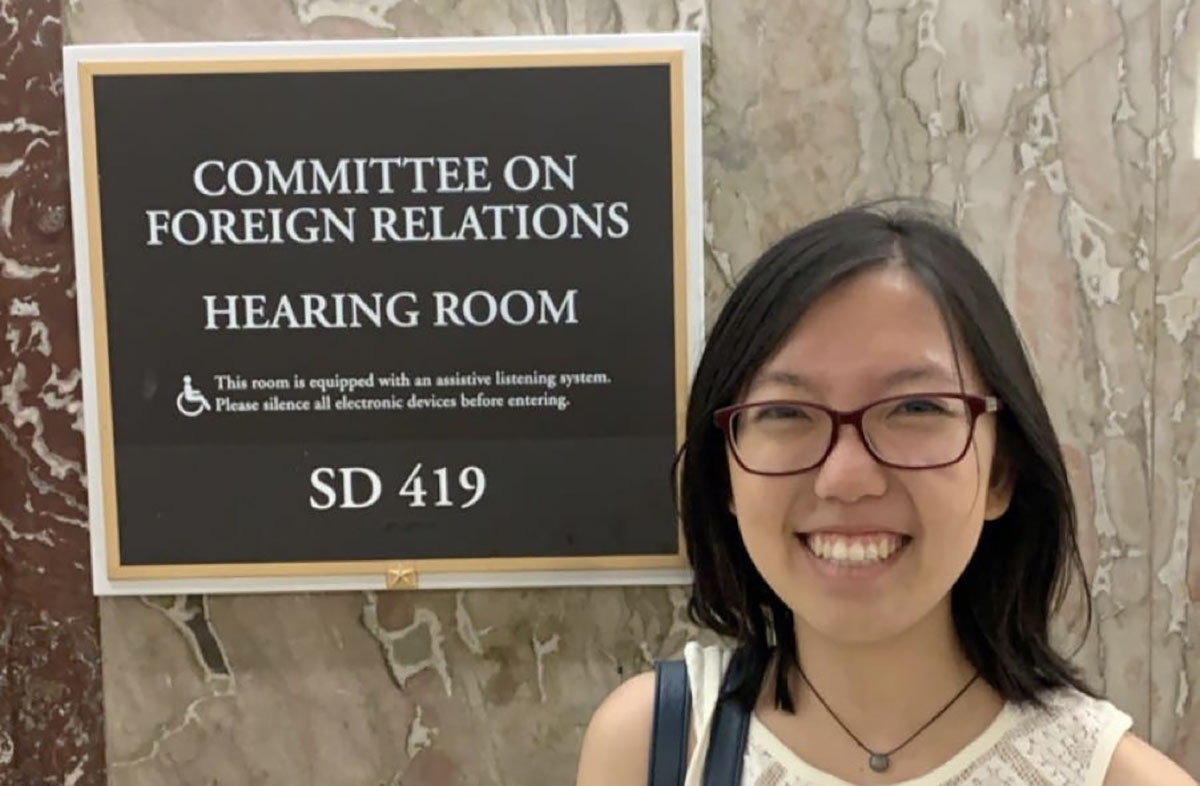
Policymaking by Empathy: Interning at the State Department
By June Lee, ’21
It’s 8:10am when I walk into the office, my blouse lightly dampened by my walk under the merciless Washington, D.C. sun. As I head to my cubicle, I hear snatches of conversations on the humanitarian crisis in Yemen and the current status of peacekeeping in Mali. I can’t help but feel a secret thrill to be working alongside individuals on issues I’d only ever read about and studied in classes.
Interning at the U.S. State Department’s Bureau of Conflict Stabilization Operations was, academically, one of the most enriching experiences I’ve had. Through weekly meetings, I gained exposure to the incredible breadth of concerns incorporated into the United States’ conflict stabilization efforts, from the role of women in peace processes, to the importance of intra-group cohesion in negotiations, to the efficacy of interventions by nonprofits and other third parties. No matter what project I was working on, it was fascinating to realize that here, my efforts could have a direct application for policy. Translating an article evaluating violence reduction in Colombia could directly inform the bureau’s engagement with partner organizations on the ground. Similarly, developing a digital framework on Excel depicting election violence indicators could help the bureau allocate funding and resources quickly to mitigate the risks of political violence. Over time, I also gained familiarity with the inter-agency process and overlapping departmental structures responsible for developing and implementing U.S. foreign policy.
Yet the most valuable thing I learned from my internship was the incredible depth of empathy it takes to work as a public servant in the State Department. The individuals I encountered worked on projects that directly affected the welfare of communities in countries emerging from conflict, and they were constantly thinking about the communities they were seeking to support. This mindset translated to all aspects of their work. My main supervisor related how, while serving as a foreign service officer in New Delhi, he would often bike to work with a camera, and offer to take pictures of people on the street. Their surprise and joy upon receiving a picture of themselves led to his receiving a flurry of texts and blessings every holiday. Another director, frustrated with the United States’ failure to address the humanitarian crisis in Syria, was motivated to resign and work for a nonprofit focused on human rights advocacy for Syrians and other refugees. And, during my daily commute, another officer explained how he had worked in Afghanistan for 18 years, an experience he spoke of with a hint of sadness but also admiration for the resilience of the Afghan people.
Since my internship, I’ve been determined to embrace this mindset. As a director of Stanford in Government and a peer advisor in international relations, I’ve sought to encourage more students to pursue careers in policy and public service. And, while working on my senior thesis, I am committed to developing a research paper that can be beneficial to policymakers and useful in advancing the United States’ efforts in conflict resolution.

Originally from Sunnyvale, CA, June Lee, ’21, studies international relations at Stanford. In addition to completing a Cardinal Quarter summer fellowship with the State Department’s Bureau of Conflict Stabilization Operations in the summer of 2019, June serves as the director of diversity and outreach of Stanford in Government and as a peer advisor for the international relations department. June is also an incoming honors student with the Freeman Spogli Institute’s Center for International Security and Cooperation.
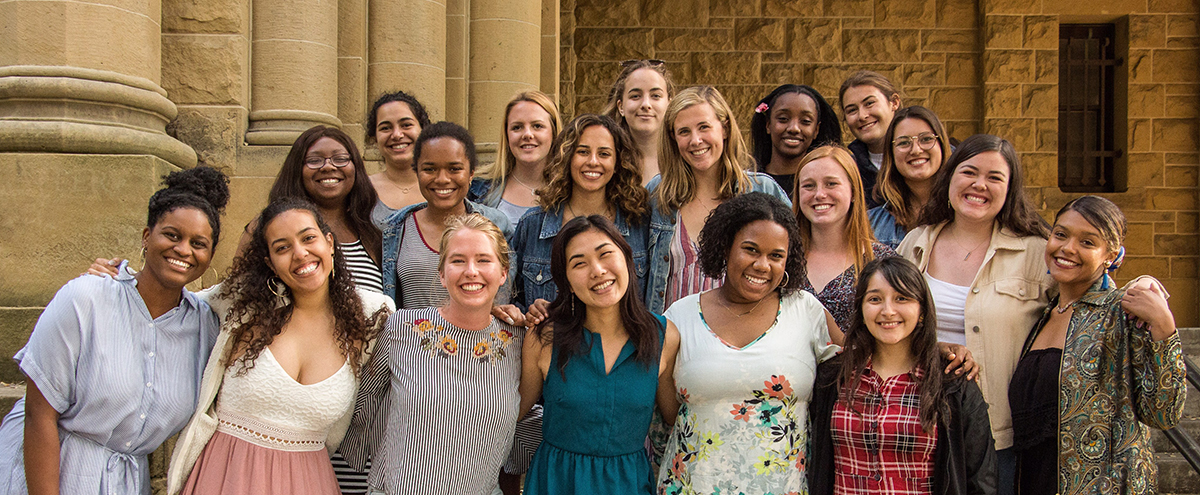
Reflecting on Four Years of Cardinal Service
By Callan Showers, ’19
The Cardinal Service initiative began my freshman year, in the fall of 2015. I am so thankful I made a lasting service commitment right away, by joining a Cardinal Commitment organization called Women and Youth Supporting Each Other (WYSE).
The Stanford women in WYSE facilitate weekly mentorship sessions for middle school girls in East Palo Alto and discuss topics like puberty, women’s empowerment, race and discrimination, and sexual health.
I was persuaded to apply because it seemed like a way for me to expand my sense of community and purpose at and around Stanford. This couldn’t have been truer. Engaging with the East Palo Alto community and its middle schoolers through WYSE has taught me innumerable lessons about cultural humility, community action, education justice, and leadership.
I also had the chance to engage with the broader Bay Area through the Cardinal Course, From Gold Rush to Google Bus: History of San Francisco. We worked with a community partner to identify little-known stories about the city’s history and write articles for an online historical database. I got to nurture intellectual interests through experiences such as digging through archives in the San Francisco Public Library, while also contributing to a community-based project with lasting impact. It also helped me realize that you don’t have to be from a place to help shape its history.
While these experiences connected me to parts of the local area, Cardinal Service programs also helped me serve in the place I have always called home: Minnesota.
The summer after my sophomore year, I received the Advancing Gender Equity Fellowship from the Haas Center and Women’s Community Center to work as a legal intern at Gender Justice, a public interest law firm in St. Paul. Gender Justice represents clients who have experienced gender discrimination or sexual harassment, and I got an inside look into legal proceedings such as depositions, while also getting the chance to draft policy advocacy memos and see the inner workings of a nonprofit.
This Cardinal Quarter inspired me to pursue public interest law because of how well it fit my skills and my desire to make change. I am pursuing a two-year position as a paralegal at a civil rights law firm in Washington, D.C. I truly believe without the values of community-engaged learning experiences and the way I saw my personal and professional values and skills align at Gender Justice, I would be less prepared to enter into this work and my life beyond.
 Callan Showers, ’19, was in the first class at Stanford to experience four years of Cardinal Service. She co-led the student organization Women and Youth Supporting Each Other (WYSE). Callan also completed a Cardinal Quarter with Gender Justice, a nonprofit law firm, and a Cardinal Quarter from the Bill Lane Center for the American West serving with the French cinema house Galatée Films.
Callan Showers, ’19, was in the first class at Stanford to experience four years of Cardinal Service. She co-led the student organization Women and Youth Supporting Each Other (WYSE). Callan also completed a Cardinal Quarter with Gender Justice, a nonprofit law firm, and a Cardinal Quarter from the Bill Lane Center for the American West serving with the French cinema house Galatée Films.
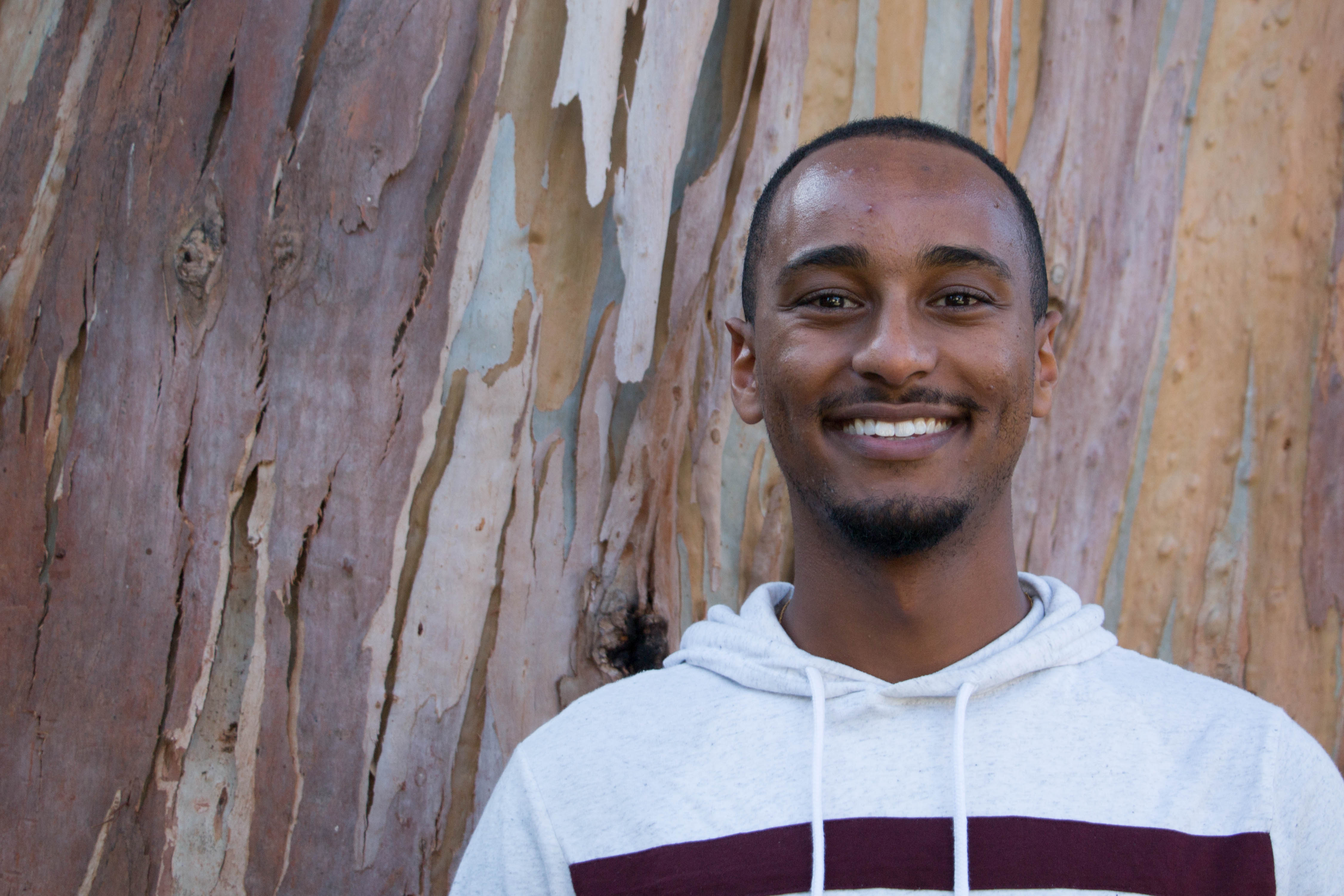
Corresponding with Criminal Justice: Letters that Brought Me Hope
By Samuel Feineh, ’19
It wasn’t until the summer after my sophomore year, through my second Cardinal Quarter opportunity, that I became more confident in who I am and what I stand for.
During summer 2017, I interned at the American Civil Liberties Union’s National Prison Project, which is dedicated to reforming prison conditions nationwide. In 2014, the ACLU filed a 34,000-person class action lawsuit against the Arizona Department of Corrections (ADC) for violating a number of inmates’ constitutional rights. After a long legal battle, the ADC agreed to reform its health care system, limit the use of solitary confinement, and provide greater access to mental health resources. When I arrived, the ACLU was monitoring the department’s compliance.
As part of the class action lawsuit, inmates could send letters to the ACLU. I spent most of my time responding to each inmate who wrote to us to supply them with resources to help them file their own lawsuits, seek medical help, or file a grievance in prison.
Hundreds of inmates wrote. Some had simple requests, and others revealed the horrid prison conditions they faced.
Reading these letters was at times straightforward, and at other times, heartbreaking. There were countless stories about inmates being denied medical coverage by private contractors, and as a result, facing life-or-death situations. In one letter, a prisoner wrote that a prison guard raped a severely mentally ill inmate, yet no investigation was undertaken.
While there was much to be frustrated about, I learned something so important from my colleagues at the ACLU: when you want to change a corrupt system, you have to start somewhere. And after you start, you keep fighting.
I spent hours on each letter, combing through the inmates’ files to send as many resources as possible. I also scrutinized thousands of documents—including medical reports and use-of-force logs—that the ADC sent us to ensure that they complied with various class action stipulations.
As part of this review process, I analyzed prison temperature logs. Each of the 15 ADC state prisons had to record the temperature at set times every day, compile the data, then send it to the ACLU each month. These records helped the ACLU ensure humane conditions in the facilities, especially in the summer months when temperatures sometimes exceeded 100 degrees Fahrenheit. The logs were routine and usually unsurprising, though we wondered if the prisons were falsifying the data because most of the temperatures ranged between 80 and 90 degrees. We had no way of proving deceit, until I found the proof.
One day, while reviewing the last few pages of one state prison’s report to the ACLU, I noticed that the facility had filled in temperature data for six dates that came after the date they had sent us the logs. The ACLU team provided the information to the judge, and swift action was taken to punish the ADC.
Witnessing how evidence is leveraged to administer justice further revitalized my hope in prison reform: through rigorous analysis, I played my part as a watchdog and made a difference.
When I came home each night to the Stanford in Washington house and told my new friends about my work, I felt my newfound sense of purpose seep into the conversation. This experience left me believing I am a change agent, and I’m excited to continue nurturing my passion. I am emboldened to keep fighting.
Samuel “Sam” Feineh is a 2018-19 Cardinal Service Peer Advisor. During the summer of his freshman year, Sam received a Cardinal Quarter to intern for his Congressman on Capitol Hill. This year, he also serves as the vice chair of programming for Stanford in Government and co-president of the Stanford Black Pre-Law Society. He is originally from Sacramento, CA.
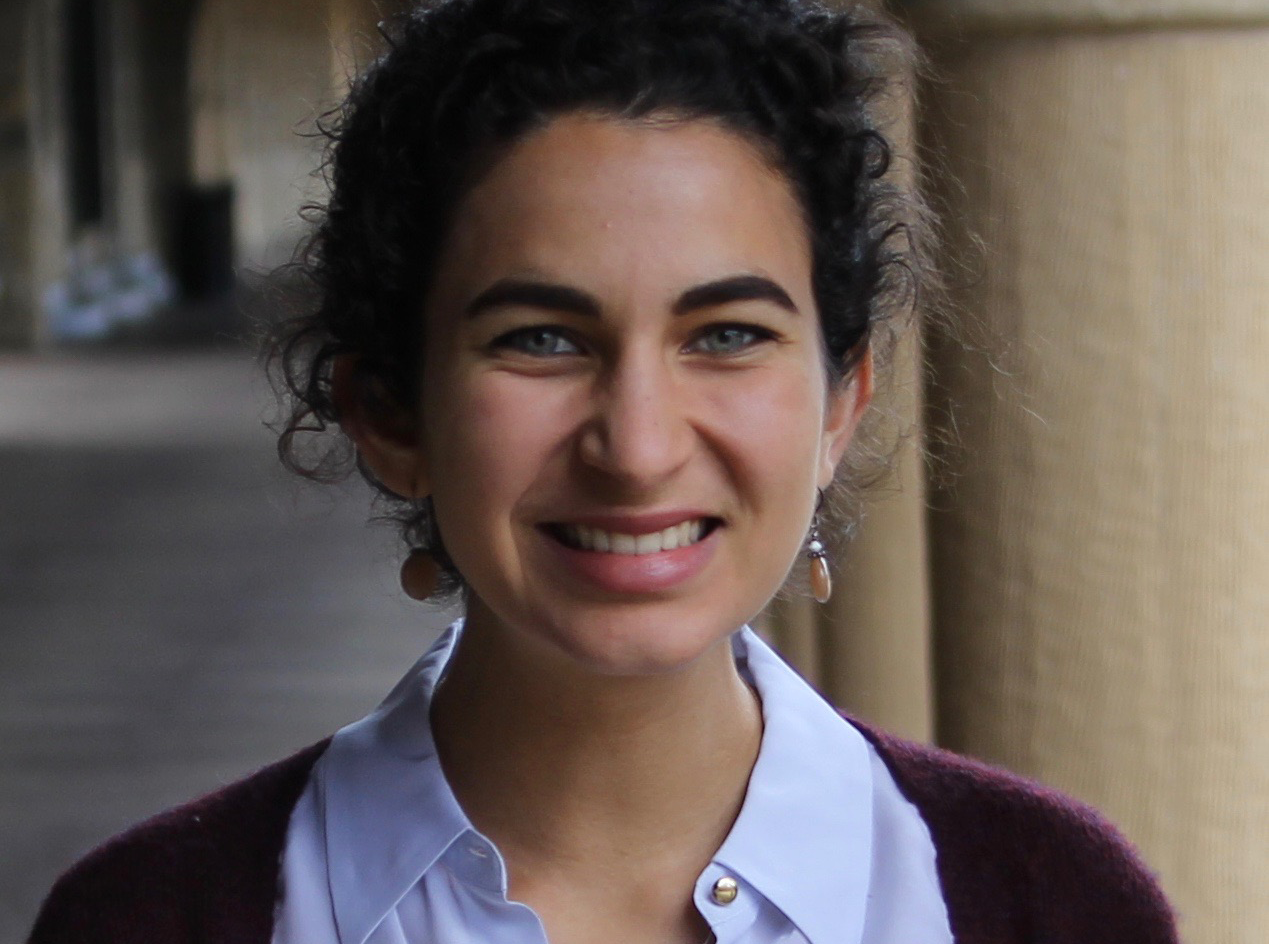
Above all, persistence
By Ryanne Bamieh, ’18 (History)
It was a Thursday morning when we got the call. My partner and I had been investigating the case for the past two weeks, and we still didn’t have anything useable. Our client was accused of a hit-and-run, just in front of a small apartment building in a Brooklyn neighborhood. We’d been trying to reach the owner of the apartment building for the past two weeks, hoping that we’d be able to obtain video footage of the crash. Our quest had taken us to a hospital in the Bronx, to a corporate building in Manhattan, and on many trips from our office in downtown Brooklyn to the scene of the alleged crime, as we tried to track down the video.

Eventually, someone had passed our phone number to the building super, who had gotten permission from his boss to call us and give us access to the footage. It was only when we got back to our office that we were able to watch the video and confirm exactly what our client told us: that another man had been driving the car.
As an intern at Brooklyn Defender Services (BDS), I was able to learn about my dream career while also helping to defend our clients—indigent men and women of Brooklyn who had been accused of a variety of crimes. I interviewed witnesses, photographed scenes, and became very familiar with standard video surveillance protocol. Through it all, I learned that the most important quality of an investigator was persistence. It could be endlessly frustrating to follow up promising leads, only to discover that they were dead ends. Yet, the times when our work paid off made all the fruitless calls and long trips around the city worth it.
I know the path to becoming a public defender will be difficult, but if I’ve learned anything from my time at BDS, it’s that I’m persistent, and persistence can carry me along even the most difficult paths.
Ryanne is part of the 2017-18 cohort of the Public Service Honor Society, a leadership program for seniors run by the Haas Center. Her experience with BDS was through a Cardinal Quarter summer fellowship.
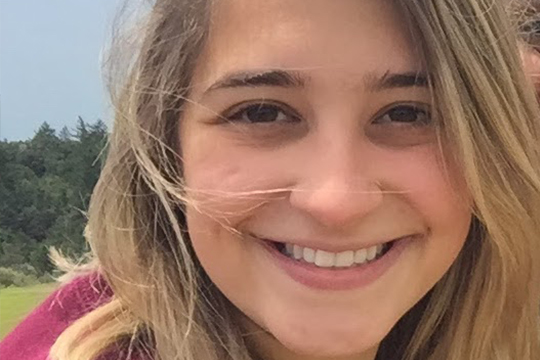
Capable
By Sophia Laurenzi, ’17 (Psychology)
At the end of the graduation lunch for the Hope House Scholars Program, a woman from Hope House thanked the teaching team for treating her without judgment and with the sense that she is capable.
Through tutoring at Hope House, a residential recovery program that women are often court-mandated to, and volunteering with The Last Mile, a start-up that teaches coding and professional skills to incarcerated individuals, I have worked with dozens of people who society sees as incapable–incapable of learning, of changing, of redemption. It has been the deepest joy of my time at Stanford to witness those involved with the criminal justice system shift from seeing themselves as incapable to capable.
The smallest moments can instill this confidence; learning a dance step in the Cardinal Service Dance in Prison course, writing a topic sentence, sharing a thought in a group discussion. These experiences have taught me that it is not ethical or even possible to try to “change” individuals in the criminal justice system. It is possible, and beautiful, to build relationships, environments, and skills that support others to tap into the universal human potential for change within themselves.
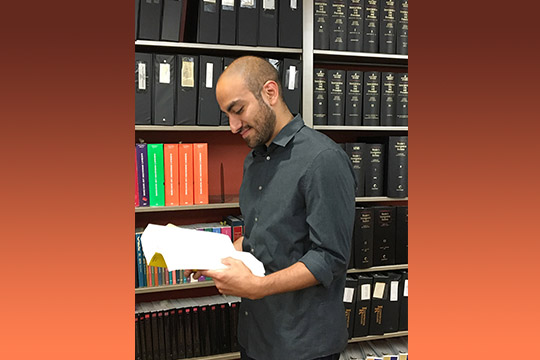
“The arc of the moral universe…”
By Oscar Sarabia Roman, ’17 (Public Policy)
Soon after starting my Public Interest Law Fellowship at the ACLU Immigrants’ Rights Project (IRP), I realized that impact litigation work is a slow process. The process focuses on big-picture outcomes and involves loads of abstract legal theory that apply to cases that may take years or decades to resolve. However, the attorneys never lost sight of how their work and, by extension, my work as an intern, contributed to the ultimate goal of achieving justice.
I was inspired and uplifted by all of the progress made by the ACLU IRP and by the ongoing battles these passionate attorneys are still pursuing. While it is easy to get lost in the legal proceedings, they never lost sight of the individuals they were helping and of the grand scale of their project. They never lost touch with their humanity or with the larger purpose and made sure I never did either. Their commitment reflects the famous quote by Martin Luther King Jr. who once said that, “The arc of the moral universe is long, but it bends towards justice.” Watching these professionals strive to increase civil liberties and immigrant rights has convinced me that this statement is absolutely true.
Oscar is a 2016-17 fellowships peer advisor.
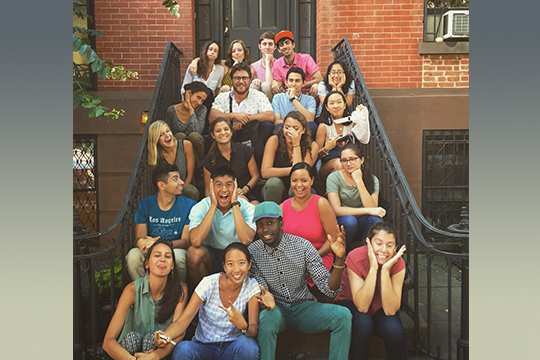
Justice for all
By Bunnard Phan, ’18 (Philosophy and Literature)
My partner and I hunched over the small monitor, downloading the surveillance footage. As investigators for Brooklyn Defender Services (BDS), a public defender’s office in New York, we gathered evidence to support BDS’s cases, and on this day, we’d just recovered video that proved our client’s innocence.
I was relieved, yet stunned. It seemed crazy and unfair how quickly our client’s life had turned upside down: one false and unfounded accusation had caused him to be arrested and jailed, because he wasn’t able to afford bail. How was this possible? Was it because of where he lived or the way he looked? Our client was a year younger than me, and I could only imagine what he and his family had gone through. I wondered, What would have happened if we hadn’t recovered the video?
Investigating cases for BDS made me reconsider my beliefs about our criminal justice system. I began my internship confident that our justice system was a place where truth prevailed and most people got their just desserts. I learned that the reality was not so simple. Speaking with lawyers and judges, I learned about tactics such as overcharging to coerce defendants to accept plea deals. Speaking with our clients, I learned about the consequences an arrest could have, even if our clients weren’t found guilty. Most of all, their experiences showed me how easy it is for someone to be exploited because of their appearance and poverty. My summer opened my eyes to the complexity of our criminal justice system and increased my desire to learn more about how it operates.
